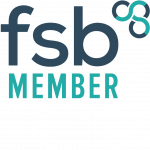Creating a Mortgage Payoff Plan
Navigating the Decision to Settle Early or Invest
Have you ever wondered whether to pay off your mortgage early or use those funds elsewhere? You’re not alone. In today’s evolving UK mortgage market, this decision is more relevant than ever.
For many homeowners in the UK, the decision between paying off a mortgage early or maintaining it for strategic financial reasons is not just a significant financial choice, but also a personal one. With the evolving landscape of the UK mortgage market, understanding the current dynamics, such as the significant rise in mortgage interest rates, becomes crucial for homeowners, especially those with the financial means to clear their mortgage. [1]
This decision transcends mere financial calculations, enveloping personal priorities, risk tolerance, and future financial plans. In this article, we explore the multifaceted nature of this decision, exploring the implications of an early mortgage payoff versus maintaining it for investment or other purposes, helping homeowners make an informed choice.

Understanding the Appeal of Early Mortgage Payoff
Paying off a mortgage early can be an attractive proposition. It leads to financial freedom by eliminating monthly mortgage payments and reducing debt. The long-term financial benefit, particularly in terms of interest savings, can be significant, especially if the mortgage still has many years to run.
Beyond the tangible financial benefits, owning your home offers emotional and psychological advantages. It brings a sense of security and achievement, aligning with the primary life goals of many individuals.
However, considerable considerations accompany this decision. Opting for early mortgage payoff requires a significant upfront financial commitment. Homeowners must weigh the potential of using these funds for diverse purposes, including investments, emergencies, or other financial opportunities. Utilising liquid assets to clear a mortgage effectively locks away that capital in property, enhancing home equity, but potentially reducing immediate financial liquidity and flexibility. Moreover, some homeowners might lose benefits, such as mortgage interest tax deductions.
Tax Implications of Mortgage Payoff
Mortgage interest payments often yield tax deductions, reducing tax liability. The loss of this deduction can impact your financial situation. In the UK, aspects like capital gains or inheritance tax might interact with your mortgage payoff decision. Seeking advice from a tax professional is crucial for understanding how an early mortgage payoff could influence your tax situation.
Navigating Interest Rate Changes
The decision to pay off your mortgage is significantly influenced by the fluctuating interest rates. In a market experiencing rising rates, the cost of maintaining a mortgage increases, making the option of an early payoff more financially sensible to circumvent higher interest payments. In contrast, during periods of lower interest rates, the opportunity cost of using funds to pay off the mortgage, rather than investing them, might be higher. A comprehensive understanding of these market dynamics is essential in aligning your decision with both your financial situation and prevailing market conditions.
The Emotional Dimension of Mortgage Decisions
Decisions about mortgages are not just dictated by numbers and financial forecasts; they are deeply intertwined with personal emotions and psychological responses. The way homeowners feel about debt and financial security can significantly sway their choice.
For many, the thought of being debt-free brings profound relief and security. The idea of owning a home can be a source of immense pride and accomplishment, providing emotional stability and control over one’s financial future. This emotional payoff can sometimes outweigh the potential financial benefits of keeping the mortgage and using the funds elsewhere.
For others, the idea of using a large sum of money to pay off a mortgage, thereby reducing their liquid assets, can create anxiety. They might feel more secure having access to funds for emergencies, opportunities, or the unpredictability of life. This sense of financial agility, of being prepared for whatever life throws their way, can provide its own type of emotional comfort.
Some individuals may experience stress at the thought of ongoing debt, regardless of the potential financial leverage it provides. Others may find excitement and satisfaction in strategically managing their mortgage and investments to maximise financial growth.
Understanding and acknowledging these emotional factors are as important as the financial calculations. Each individual’s emotional relationship with debt, investment, and security is unique and should play a central role in the decision-making process. It’s not just about what makes the most financial sense on paper, but also about what feels right on a personal, emotional level.
The Case for Maintaining a Mortgage
Choosing to maintain a mortgage, even when capable of paying it off, can be a strategic financial decision. This approach enables homeowners to allocate available funds towards other investments, potentially yielding higher returns than the savings made from paying off mortgage interest. Especially in a favourable investment climate, the potential returns from venues like stock markets or real estate investments can be lucrative.
Maintaining a mortgage provides financial flexibility and liquidity not offered by paying it off. This approach allows homeowners to remain agile, capable of effectively responding to unexpected expenses or seizing investment opportunities as they arise. Additionally, ongoing mortgage payments could present tax efficiencies, where mortgage interest is deductible from taxable income.
Weighing Up Investment Alternatives
If opting against using your funds for an early mortgage payoff, a spectrum of investment opportunities is available. Investment avenues range from stocks and bonds to real estate, each with its own risk and potential return profile. For instance, while stocks may offer higher returns, they also come with increased risk compared to bonds. It’s crucial to compare these potential returns against the cost of your mortgage interest to determine the most financially advantageous path.
However, this strategy of maintaining a mortgage is not devoid of risks. Investment markets are inherently unpredictable and volatile, which can introduce significant financial risk. Additionally, maintaining a mortgage means continuing to accrue interest, which can add considerable amounts to the total cost of owning a home.
A Balanced Approach
Choosing between an early mortgage payoff and maintaining it for financial leverage requires a balanced, personalised approach. Homeowners need to comprehensively assess their financial health, including savings, investment portfolio, other debts, and income stability. Understanding one’s personal comfort with financial risk is also vital. For those who prefer a guaranteed return, saving on mortgage interest by paying off the mortgage might be more appealing. Conversely, those with a higher risk tolerance and robust investment plan might find maintaining the mortgage more advantageous.
Long-term financial goals also play a pivotal role in this decision. Homeowners should contemplate whether they are aiming for maximum wealth accumulation, or if the security and peace of mind that comes with being debt-free are more important. Factors such as life stage and future financial plans, including retirement planning, will significantly influence this decision.
________
The decision to settle your mortgage early or maintain it for strategic reasons is deeply personal and complex. It involves evaluating your unique circumstances, financial objectives, and comfort with risk. With each homeowner’s situation distinct, seeking guidance from a mortgage advisor or financial professional is invaluable. Such expert advice can provide personalised insights, assisting you in navigating this significant decision with clarity and confidence.
THINK CAREFULLY BEFORE SECURING OTHER DEBTS AGAINST YOUR HOME. YOUR HOME MAY BE REPOSSESSED IF YOU DO NOT KEEP UP REPAYMENTS ON YOUR MORTGAGE.
The value of investments and any income from them can fall as well as rise and you may not get back the original amount invested.
HM Revenue and Customs practice and the law relating to taxation are complex and subject to individual circumstances and changes which cannot be foreseen.
Status Mortgage Services is a trading style of Status Financial Services Limited (Company number 08983516) which is an appointed representative of the Openwork Partnership, a trading style of Openwork Limited which his authorised and regulated by the Financial Conduct Authority.
Approved by The Openwork Partnership on 11/12/23
SOURCES:
[1] Forbes Adviser – Mortgage Rates – Updated daily
https://www.forbes.com/uk/advisor/mortgages/mortgage-rates-23-11-23/









